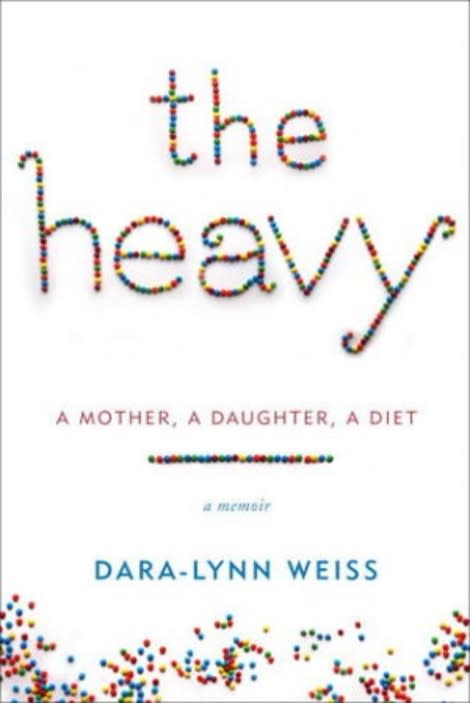In Defense of the Mom Who Put Her 7-Year-Old Daughter on a Diet
By Gail O'Connor
What is it like to have the whole world call you a bad mother?
Mom Dara-Lynn Weiss would know. Last year Weiss wrote about putting her obese 7-year-old daughter Bea on a strict diet, and posed with her, post-diet success, for the pages of Vogue. Weiss has now authored a slim volume called The Heavy, out yesterday, about the experience. (The heavy is Weiss, who was the one to monitor and sometimes get tough when it came to Bea's diet.)
RELATED: Raise a Healthy Kid in a Supersize World
I'd read the article before I read the howling on the Internet over Weiss's piece-she was called "abrasive," "irrational," "truly disgusting," and a "monster," among other things-and I was always sympathetic. Weiss's story didn't fit the profile of your "typical" overweight American family's. She had served well-rounded dinners with healthy vegetables. She kept no junk food in her cupboards (which is more than I can say). And she reserved fast food for a semi-annual treat (ditto).
But the darling Bea, who was never content with the serving sizes that would satisfy her younger brother or other kids her age, gained weight at an alarming rate anyway. Weiss, who like many of her peers had had her own up-down relationship with weight and fad diets, freely admitted she was unprepared and ill-equipped to handle Bea's obesity. Feeling discomfort about her daughter's growing size but reluctant to say anything about it, Weiss chose silence instead, even after Bea's pediatrician said it was time to get the 7-year-old's 93 pounds under control.
The problem didn't disappear, and sadly, Bea was starting to notice it, too, and began referring to herself as "fat," in spite of reassurances from her parents that she was beautiful. Eventually Weiss chose a child-friendly, calorie-restricting plan that would give Bea the lifelong skills necessary to make judgment calls about which foods were indulgences, and which were healthier choices, without depriving Bea of treats altogether. It wasn't always easy, and there are examples of interventions by Weiss that her (many) critics saw as excessive, even psychologically damaging, but Weiss was taking on a daunting task: helping a child lose weight in a world of doorstopper-size cupcakes.
RELATED: Fighting Childhood Obesity
Perhaps I felt for Weiss, and for Bea, in part because I recently struggled with weight myself. (Not surprisingly, Weiss writes that others who had been overweight as children confided that they wished their parents had done more to help them.) I'd read moving stories written by plus-size women about loving their bodies the way they are, and while I admired their self-acceptance, I'd never been able to feel that for myself. Besides the obvious worries about my health, being fat sucked. I felt uncomfortable, embarrassed, and, many times, sad about my weight. I wouldn't want my daughters or my son to go through it, and Weiss's book says what I and most parents I know would feel squeamish saying aloud: No one wants her child to have to struggle with being fat.
Like Weiss had done, I watch my language around my kids, having banished "fat" and "bad" from my vocabulary when we're talking about food, doing whatever I can to help my daughters in particular sidestep a painful path towards self-loathing or an eating disorder. But I admit I also don't want my kids going down the road to obesity, and its social ostracism and disease. So I felt drawn to Weiss's candor about childhood obesity, and I just plain old liked her for her admissions about having made some mistakes along the way. (Who hasn't?) I winced for her after reading about the surprising amount of pain she felt from the (international!) criticism of her Vogue article, and her genuine regret about having allowed Bea to pose with her.
I know some will accuse Weiss of trying to profit from her daughter's battle. But I found it eye-opening to read an honest, firsthand account from a parent willing to speak difficult truths about her family's experience with childhood obesity.
It takes a lot of courage to bare your failures and frailties as a parent. Perhaps a few moms and dads who read Weiss's memoir will walk away from it, as I did, with a more intimate understanding of what it's like to raise a kid who struggles with weight.
And maybe we can all be a little less judgmental of the friend or neighbor we know whose kid is coping with one of the last taboos: the public, painful experience of childhood obesity.
This article first appeared on Parents.com.

